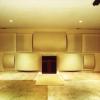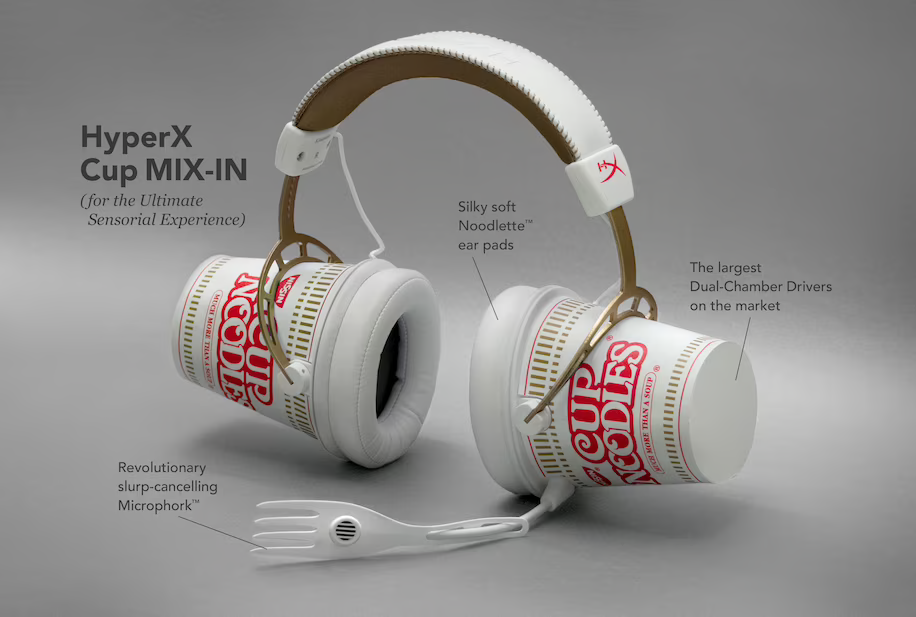-
Posts
4203 -
Joined
-
Last visited
Profile Information
-
Gender
Not Telling
-
Location
Not Uranus
-
My System
Main Listening Room:
Dedicated purpose built acoustically tuned room approximately 550 sq.ft / 4400 cu. ft. Additional soundproofing with multiple layers of 5/8” OSB & Green Glue in progress.
Speakers: Danley Sound Labs SH50
Subwoofers: Epik Empire (four)
Computer Source: ROON/Intel NUC 11 TNHi7
Streaming Source: Roon, Tidal
Main Amplifier: NAD M66 Preamp/NAD M23 Power Amp
Tuners:
NAD C446 Digital Media Tuner 48KHz toslink output
McIntosh MX130/MR7083 for FM analog
Turntables:
Thorens TD126 MKII, SME III arm, Shure V15mr Type 5
Linn LP-12, Origin Live PS & motor upgrade, Moerch UP4 arm, Decca Jubilee
Phono Preamp: Audio Research SP6B
SACD Player: Sony SCD-XA5400ES HDMI
Tape Decks: Nakamichi Dragon, Tascam CC-222SL MK II, Sony A7 DAT (*toslink)
Headphones: AKG K270
Other: Various vintage Crown, McIntosh MX130 & MC7205, Luxman MB3045 , Wright Sound Lab 3.5 Mono, BoyuuRange A50 300B, Reisong A10, Decware Zen SE84UFO (2 - dual mono)
Home Theater:
UHDTV: Sony XR-65X90L
Receiver: Onkyo TX-NR838
Speakers: Klipsch RF-7 II mains, RC-64 II center, RC-7 rear/surround (vertical with horns turned 90d)
Subwoofer: SVS PC-2000
DVD/BluRay Player: Sony UBP-X1100ES
Model Railroad Room:
Speakers: Klipschorns (1976)
Reciever: Harman Kardon AVR130
CD Player: Denon D-600F
Office: Klipsch ProMedia 2.1 desktop, LG Flatron M237WD - See My System
Recent Profile Visitors
7383 profile views
artto's Achievements

Forum Ultra Veteran (5/9)
539
Reputation
-
Since I started this post, I'm going to throw a stone into the wheel. Sort of a very brief mini preview of what's coming next. I recently purchased a NAD M66 preamp and NAD M23 power amp. The NAD M23 is, for me, very likely an end game. More later.............
-
I recently purchased a NAD M23. I am in awe. IMHO, this could be the end game for me. I find the M23, dare I say, "musical". I have a lot of tube amps on hand. I haven't fired any of them up since getting the M23. Actually, I bought a NAD M66 preamp first. I used that for a couple months with 300B, EL34 & Decware SE84UFO. I feel no desire to hook any of those back up yet. Bruno Putzeys & friends really hit it out of the park with this one. IMO this amp is a major step forward. A significant upgrade, which is not something I often attribute to a power amp. I realize the M23 is way above your budget, but NAD makes something similar in their less expensive "Classic" line.
-
Mark, I'm not using balanced inputs. I looked into this when considering Cary 300SE which had balanced XLR inputs. I was considering using shorter speaker cables, and longer XLR input cables. The Cary engineer explained that the 300SE wasn't really a true balanced input design and consequently recommended NOT using long XLR cables. Therefore, I don't see any advantage to using balanced input (adapters) with the Decware SE84 - unless of course, the source component you intend to use with it has balanced XLR outputs, and you are going to keep the cable length shorter (ie: normal 3ft, maybe up to 12ft max). I just made my own jumper cables for mono operation with the same wire used for the speaker cables (stranded 12ga. oxygen-free Mogami)
-
Well, here it is. The old with the new. And I'm not talking about ME. LOL But, here is yours truly, with my new Fender Precision Bass Ukelele playing through what is arguably THEE Holy Grail of guitar amps, a 1959 Fender Bassman 5F6A. This particular 1959 Fender Bassman amp has had only one owner, and he was a member of The Harmonicats. Yep, just used for harmonica all those years. AND, FWIW, the amp is going to be up for sale. Interested individuals can contact me and I can put you in touch with my friend (also a Harmonicat) who handling this part of the estate.
-
I have a pair 1976 Klipschorns that I am considering selling. They are the unfinished birch model. I finished them, light blonde maple color. The exposed plywood edges were veneered before stain. Varithane finish. Original owner.
-
I agree. But STUPID me, on my first "good" (real) stereo system (circa 1971), I had my preamp choice nailed down to a Crown IC150 OR Audio Research SP3a. One guess which one I bought - because of better specs, and lower price. Yup. Hodie-doh. Talk about starting off on the wrong foot!!
-
"In the end, everyone should choose what he likes better." Isn't that what I said? The problem here, as I've said, is that MQA does not make or break the sound quality of a recording. In fact, as per my participation in the afore mentioned listening session, afterward I asked the following question of the recording engineer - "So, it seems that the better the recording, the more improvement, realism, can be achieved?" The answer was "Yes, exactly". So it still boils down to how the original recording was made. What was the recording process? And that is what most audio"philes" lack, an understanding of the recording process. It's one of those things (the "art" part) where only through experience (in the recording process) can you really have any understanding of what's going on. To quote Mark Levenson: "to become a master in the art of music reproduction you have to approach it the same way you approach the art of photography—to not only know what the picture looks like, but also to know the process by which the photograph is made. You have to know what goes into the recording before you are in the position to evaluate what it sounds like coming out of a hi-fi system." EDIT: Paul Klipsch knew this, and practiced it too. MQA is supposedly "artist (producer) approved". But what if I don't like what the artist likes (sound quality wise)? Well, in my experience, I don't have to use it. I can play a non-MQA version of the file, either by streaming/playing it back on a non-MQA device, or from my own non-MQA CD rips or other recordings. I really don't understand what all the fuss is about. Also, I've never been "forced" to pay extra, outright, for anything MQA simply because the device or recording has MQA encoding available. The MQA license fee, regardless of where it is in the "chain" is far, far less significant than the streaming service cost, the product cost, whatever. Companies will charge what ever the market will bare. The "cost" of MQA to the end user is essentially inconsequential.
-
How do we know that we're listening to the same music file? We don't. We may believe it's the same music file, but that fact is, we don't know. Nor do we know if, or what, any of these sources did on their own (to enhance THEIR product). If you think you can actually hear the data reduction of MQA compared to FLAC I would have to say you (or anyone else) is sadly mistaken. AND, I would also challenge you or anyone else to put your money where your mouth is. You may indeed be hearing a difference. But I seriously doubt it's what you believe it is. Let take this one step further. Have you, or anyone else, been present at a listening session, with some very well-respected, unfortunately extremely expensive audio system, where you were able to audition 3 different recordings, all made by the same recording engineer, one who has a well regarded reputation, and you, at the time don't even know this, you don't know who this recording engineer is (or even know that he is one at this point - he could just be "one of us"), and unknowingly, do not know, are completely unaware (as in a totally blind test comparison), of what was being compared? By this I mean, you don't even know what MQA is (for instance) - never heard of it. You're just supposed to listen to two versions of each of the three recordings, and decide if there's a difference, and if so, what it is?
-
You have missed the point. Which is understandable, especially if you haven't "done the study", so to speak, or at least not very much. First of all, there is no such thing as "perfect" system or "perfect" room (or, IMO, "perfect" anything). I referred to an audio playback system as needing to be "neutral" (unbiased). as a much as possible, in order to get beyond the beyond the format, component matching, blame it on the recording, etc crap. However, IF, one's desire is to only listen to certain "things", and have it sound how they want it to, without regard to reproducing an extremely good facsimile of the original performance/sounds, that's OK. Go for it. But don't blame it on the recording, or how it was recorded, or this is better than that, etc. What I'm saying is that, IMO, most people tend to unintentionally, even unknowingly, "bias" their audio system, to their liking, which is ok. It's your ears and your money. It only has to please YOU, no one else. But this has nothing to do with all the things I mentioned. Pick a popular recording that you like. Do some research on it. Where it was recorded, and by who. Take a look at a music database like disorgs.com and see how many "versions" of that recording there are. And then tell me which one Tidal, or Qobuz, or HD Tracks, whatever, is using. The fact of the matter is, we don't know. All I'm saying is that, I used to be a "purist". No tone controls. Continually swapping equipment trying to optimize something that can't, and shouldn't be "optimized" per se, but rather "neutralized". I'm passed that now. It doesn't matter whether I'm listening to a recording taken from a 1890's Edison cylinder phonograph, or current state-of-the-art whatever. It's still enjoyable. It sounds like what it is. And it has its own special qualities, some of which, IMO have been lost in translation (because nothing's "perfect").
-

Does everyone have a hiss when no music is playing?
artto replied to Don A's topic in 2-Channel Home Audio
NOPE. NAD M32, DSL SH50, (100dB sensitivity), room has a noise floor in the low 30dB range -
I'm going to play devil's advocate and take the opposite side of the "argument". And yes, this is probably going to sound arrogant on my part, but so be it. FIRST OF ALL, as one of our late Forum Members, Dave Mallet used to say, "the recording engineer is king". (I'm pretty sure he said that, lol. If not, sorry Dave) 2. I have ask everyone of you, how many of you have ever done ANY recording of live (acoustic) music or sounds? There is so much variation in "subjective" sound quality from recording to recording, even from the same performing artist(s), same recording engineer, same recording location that it's literally impossible to associate a "preference", and say that (for instance) MQA is $hit, one streaming service (Tidal vs. Qobuz) is better or worse, analog vs. digital, etc. I mean, literally, how many of you have ever made sound recordings of something extremely familiar to you (like your own backyard), in both analog and digital simultaneously, from the same signal feed? I suspect not many. When your audio system is finally "tuned" properly (in my world that means non-biased), you will be able to enjoy pretty much any and all recordings, no matter how old or recent they are, no matter what format they were recorded in. OTOH, I will readily admit that what I just said is easier said than done. Not everyone has the time, resources, dedication, or lack of personal conflicts to get to that point. After all, this literally is a "journey". And one tries to do the best they can with what is achievable for their self at any particular time. There's simply too many variables along the way, in the recording process, starting with the performance, how it's captured, and what happens to it before we get to hear anything. I can tell you as a matter of fact, that those "magical" recordings don't just happen, but then again, they do. I know, because I've done it. Same recording facility, same mics & other equipment, same mic locations, and yet, "it sounds different". Often, "that magic", just happens. We all have very little control over what we hear from any recording through our audio system - UNLESS - you are the recording engineer. Even then, it's often very difficult to achieve and maintain consistency. Take MQA for instance. (first of all, it's NOT a FORMAT. It is a CODEC). "Artist Approved"? What the hell does that mean? Jimmy Page is often the producer for many of the Led Zeppelin recordings/reissues/re-masters. How good do you think his ears are now? It sounds good to him, he approves it. Don Henley might be driving around in a Porsche Roadster with the top down playing the test tracks from a recent recording, calls his mastering engineer and says "Yeah. I like that. Let's go with it". We have no idea. And quite frankly, he's probably listening for something quite different than we are. But it's MQA approved. So what. It all, unfortunately, has nothing to do with we're all looking for. And then..................there's the listening room, influencing everything on its way to our ears. It's really quite folly to believe in the "purist" approach - no tone controls or EQ, for fear of how it might pollute our precious "sound". Been there, done that. If you don't like something you're hearing, on your system (which includes the room) - it's your system. Not the recording, not the format, not whether it's MQA or not, or something else.
-
Well, Klipsch. Here's your (second?) big chance to add an excellent, highly respected high-end audio amplifier company with a compatible & desirable product line to your portfolio. IMO Klipsch probably should have bought Mark Levenson, or McIntosh years ago when the opportunity arose. But since Klipsch is now owned by Voxx Internaltional (formerly AudioVox, the cheap car stereo company) this probably won't happen. https://parttimeaudiophile.com/2023/05/02/audio-research-in-trouble-announcements/ But, IMHO, ARC would make a great match with Klipsch, and also an opportunity to maybe introduce some more affordable vacuum tube products into the mix. "Just sayin"
-
I'm so sorry to hear of your loss wuzzer. 18 years is a long time. But they make it so good. I don't know why, but this sometimes seems more difficult than losing a parent or sibling. I'm going to lose my pal in the next few weeks - stage 5 lymphoma. He just turned 8 and he's been with us 5 years and a week.
-
Cannayouhearbis? https://parttimeaudiophile.com/2023/04/01/cannabis-for-audiophiles-the-far-corners/













